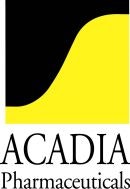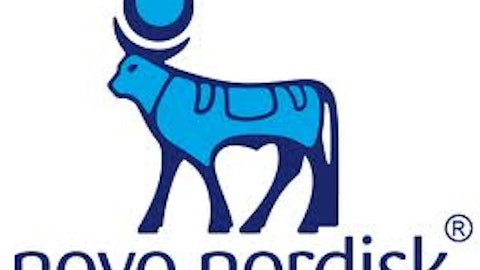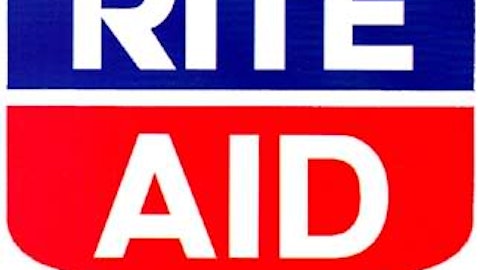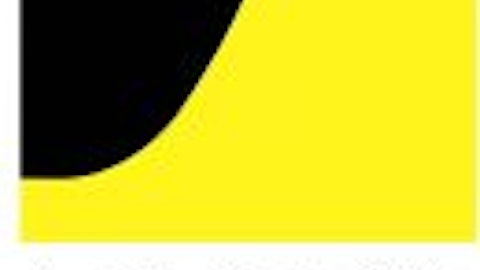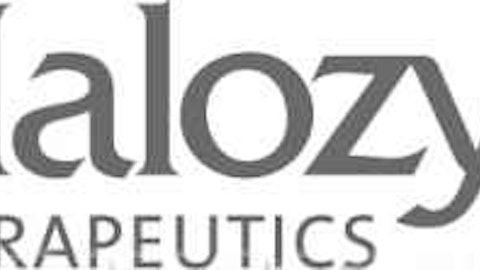One of the best ways that retail investors can try to decide which stocks will make for a promising investment is to look at what the hedge funds are doing. This can be achieved by examining a few official filings such as 13F, 13D, and 13G reports. 13F filings are done quarterly and show which positions hedge funds have taken. 13D and 13G reports are done more often, but only when a fund has taken a position of at least 5%. On Thursday, June 6, 2013, a popular biotechnology hedge fund called Baker Brothers disclosed a 22.6% ownership stake in ACADIA Pharmaceuticals Inc. (NASDAQ:ACAD).
Baker Brothers History
Baker Brothers is a biotechnology-focused hedge fund that is owned by Julian and Felix Baker. The hedge fund is widely admired by investors because of its huge investment returns, most notably from its early investments in Pharmacyclics, Inc. (NASDAQ:PCYC) and Seattle Genetics, Inc. (NASDAQ:SGEN).
Pharmacyclics, Inc. (NASDAQ:PCYC) is a clinical-stage biopharmaceutical company focused on developing and commercializing small-molecule drugs for the treatment of cancer and immune mediated diseases. The company has soared over the past 2 years, climbing from a low of under $8.00 to a high of $93.99.

Baker Brothers started adding shares of Pharmacyclics back in the fall of 2011 and have been increasing their stake since. The company currently makes up 23% of the Baker Brothers portfolio and is worth approximately $878.4 million. And while Pharmacyclics was an impressive investment, it wasn’t the only for the Baker Brothers.
Seattle Genetics, Inc. (NASDAQ:SGEN) is a biotechnology company focused on the development and commercialization of monoclonal antibody-based therapies for cancer. Seattle Genetics’ share price has soared since 2010.

The Baker Brothers started adding shares of Seattle Genetics back in 2010 and continued adding shares as the share price increased. The company currently makes up 18% of the Baker Brothers portfolio and is worth approximately $686 million. Clearly the Baker Brothers have a strong record of success, which is carrying over to their recent investment, Acadia Pharmaceuticals (NASDAQ:ACAD).
Acadia Pharmaceuticals
ACADIA Pharmaceuticals Inc. (NASDAQ:ACAD) is a biopharmaceutical company focused on small molecule drugs that address unmet medical needs in neurological and related central nervous system disorders. The company has a deep pipeline of drug candidates led by pimavanserin, which is in Phase III development as a first-in-class treatment for Parkinson’s disease psychosis. ACADIA Pharmaceuticals Inc. (NASDAQ:ACAD)’s pipeline also includes clinical-stage programs for chronic pain and glaucoma in collaboration with Allergan, Inc. (NYSE:AGN). Below is a chart diagram showing the full pipeline for ACADIA Pharmaceuticals Inc. (NASDAQ:ACAD), along with each product’s progress.

On March 20, 2013, ACADIA Pharmaceuticals Inc. (NASDAQ:ACAD) presented data from the pimavanserin Phase III clinical trial. Pimavanserin met the primary endpoint by demonstrating highly significant anti-psychotic efficacy on the 9 item SAPS-PD scale. The compound also met the key secondary endpoint for tolerability. This data set the stage for the big news announcement on April 11, 2013, when Acadia revealed that it had received an expedited path to an NDA (New Drug Application) filing for pimavanserin. The U.S. Food and Drug Administration agreed that the data from the Phase III trial, along with supportive data from other studies with pimavanserin, were sufficient to support the filing of a NDA for the treatment of Parkinson’s disease psychosis. This announcement sent the shares soaring nearly 65%, as the chart below shows.

As mentioned in the introduction, the Baker Brothers added to their Acadia Stake during the second quarter of 2013. Previously, Acadia only constituted 3.3% of the Baker Brothers portfolio. After the disclosure from the Baker Brothers on June 6 before the market opened, the shares have rallied another 31.5%, with shares currently trading at $19.37.
So will the momentum continue? The fundamentals indicate that the momentum can go on. At the end of 2012, Acadia had increased their year over year cash position by more than 200% from $31 million to $108 million. When analyzing biotech stocks, cash is typically the most important financial statement line item. A decreasing cash position indicates that a secondary offering may be imminent. A rising cash position indicates a biotech company that is efficiently managing their current assets. Another positive for Acadia is that they have no long-term debt on the balance sheet. This means that the company can continue to spend money on their trials without having to worry about paying back someone else.
Risks
While the future certainly seems promising for Acadia, there are risks that investors should consider. First, the FDA could always choose to reject pimavanserin as a treatment option for Parkinson’s psychosis disease. Companies with promising clinical results are routinely denied by the FDA because of safety or other concerns. No matter how promising the data is, a rejection is always a possibility. This can cause the company to spend at least another year or two gathering more data and presenting again. Another risk is that the share price has appreciated significantly over the past 2 months–by more than 150%, to be exact. With the company now valued at over $1.5 billion, investors will need to ask themselves whether that valuation is justified. I happen to think it is based on the potential.
Conclusion
Acadia certainly seems to have a promising future. Despite the risks and valuation concerns, Baker Brother’s track record is undeniable. With the fund’s recent investment in Acadia and the company’s deep pipeline, I would recommend investors keep their eye on this stock and consider adding it to their portfolio.
The article Acadia Pharmaceuticals Soars On Hedge Fund Investment originally appeared on Fool.com.
Ted Mayer has no position in any stocks mentioned. The Motley Fool recommends Seattle Genetics. Ted is a member of The Motley Fool Blog Network — entries represent the personal opinion of the blogger and are not formally edited.
Copyright © 1995 – 2013 The Motley Fool, LLC. All rights reserved. The Motley Fool has a disclosure policy.
